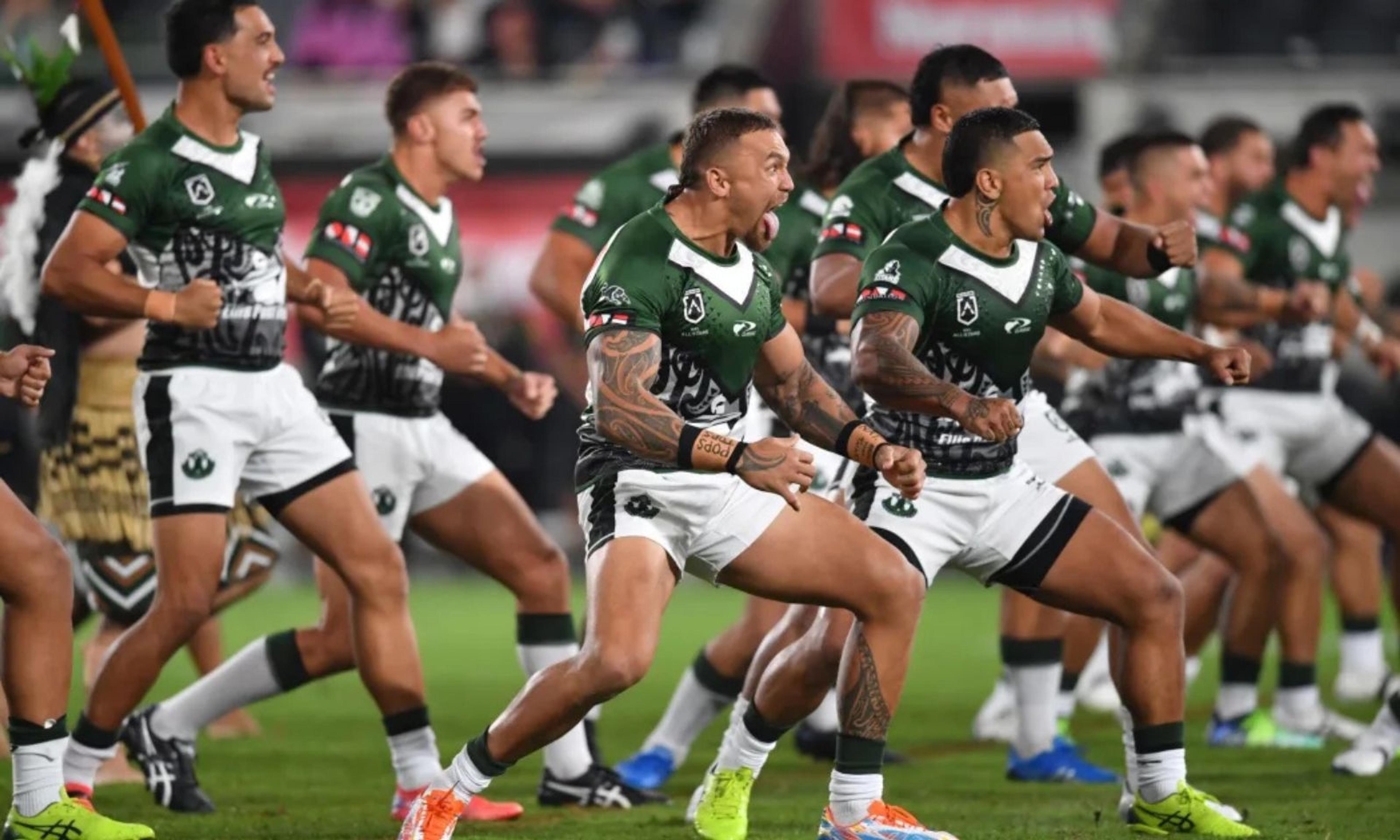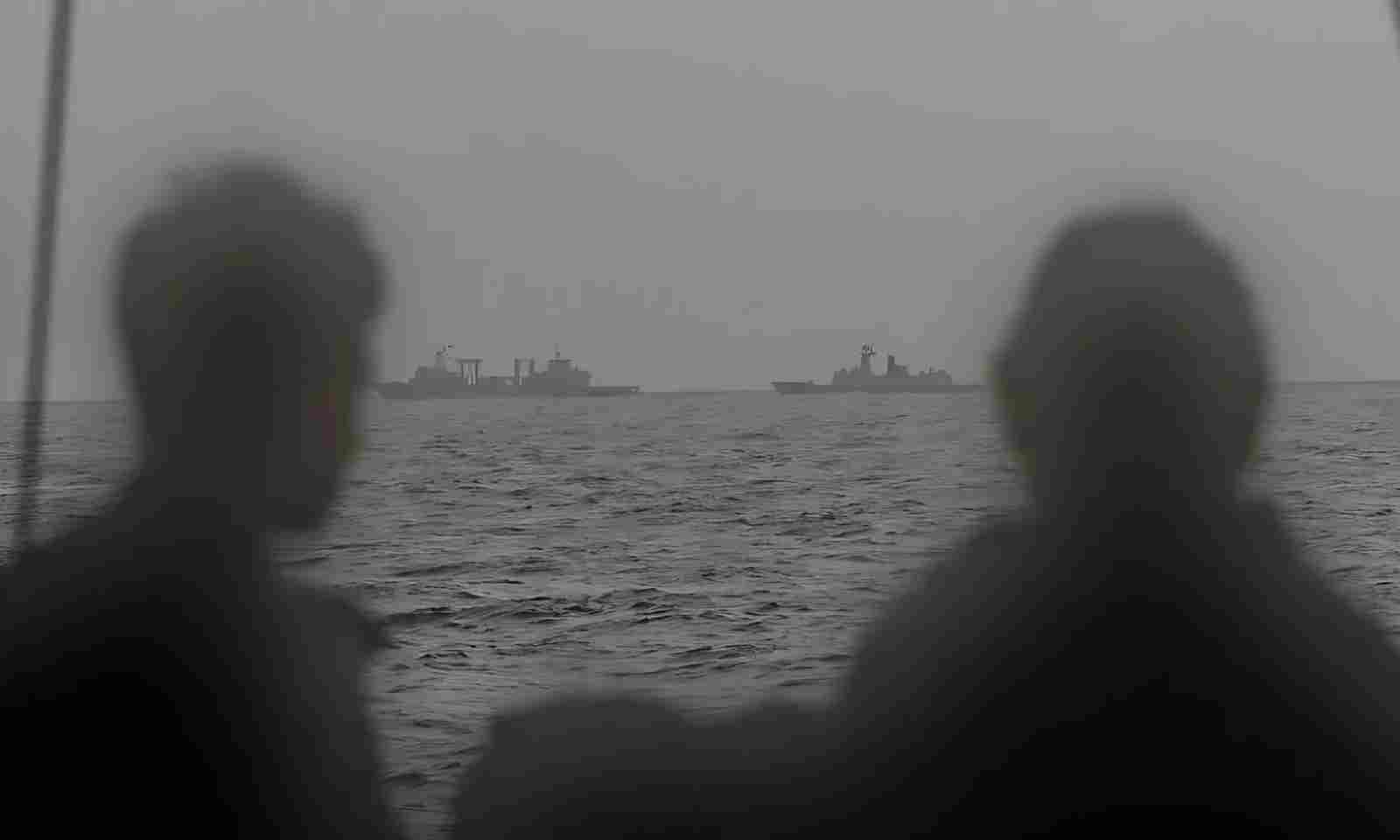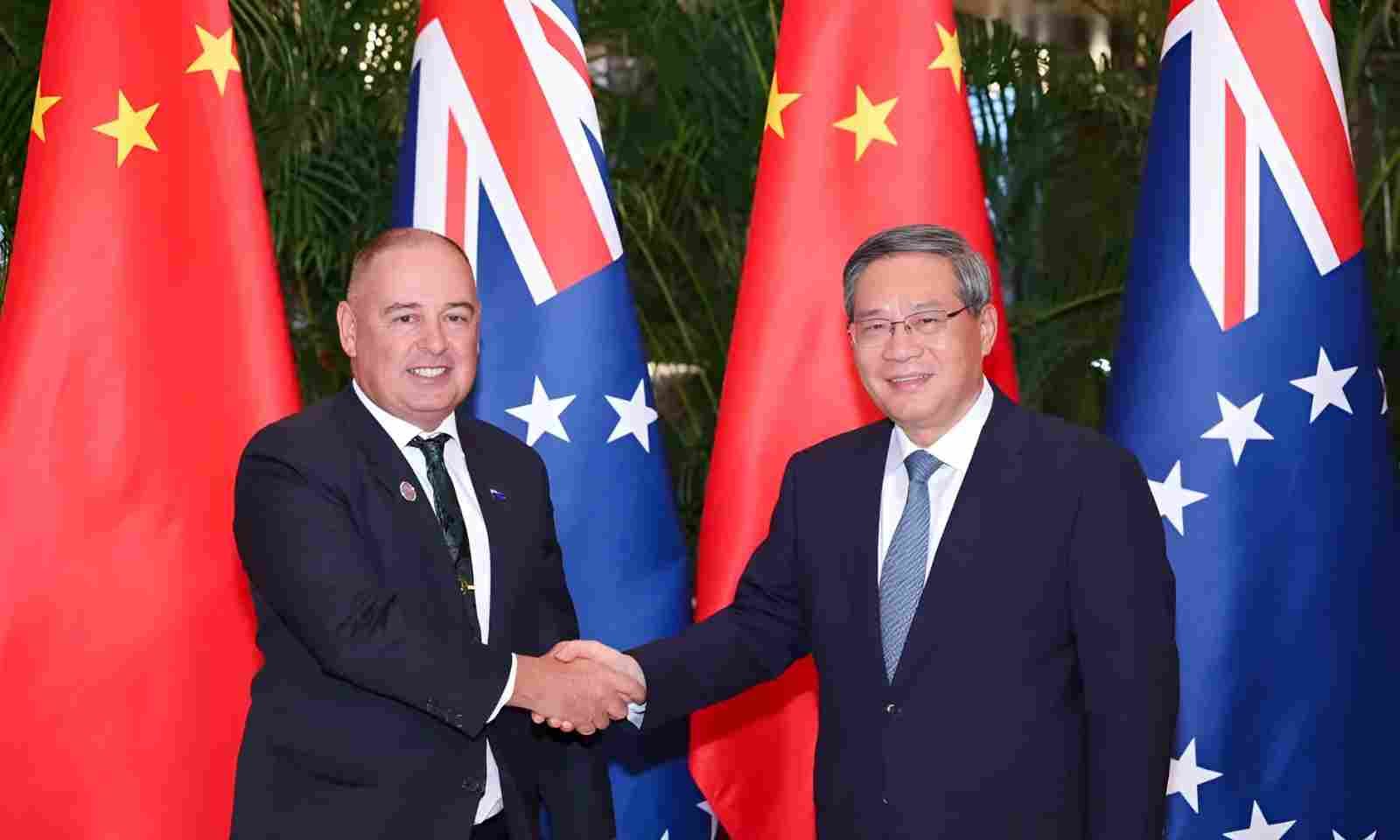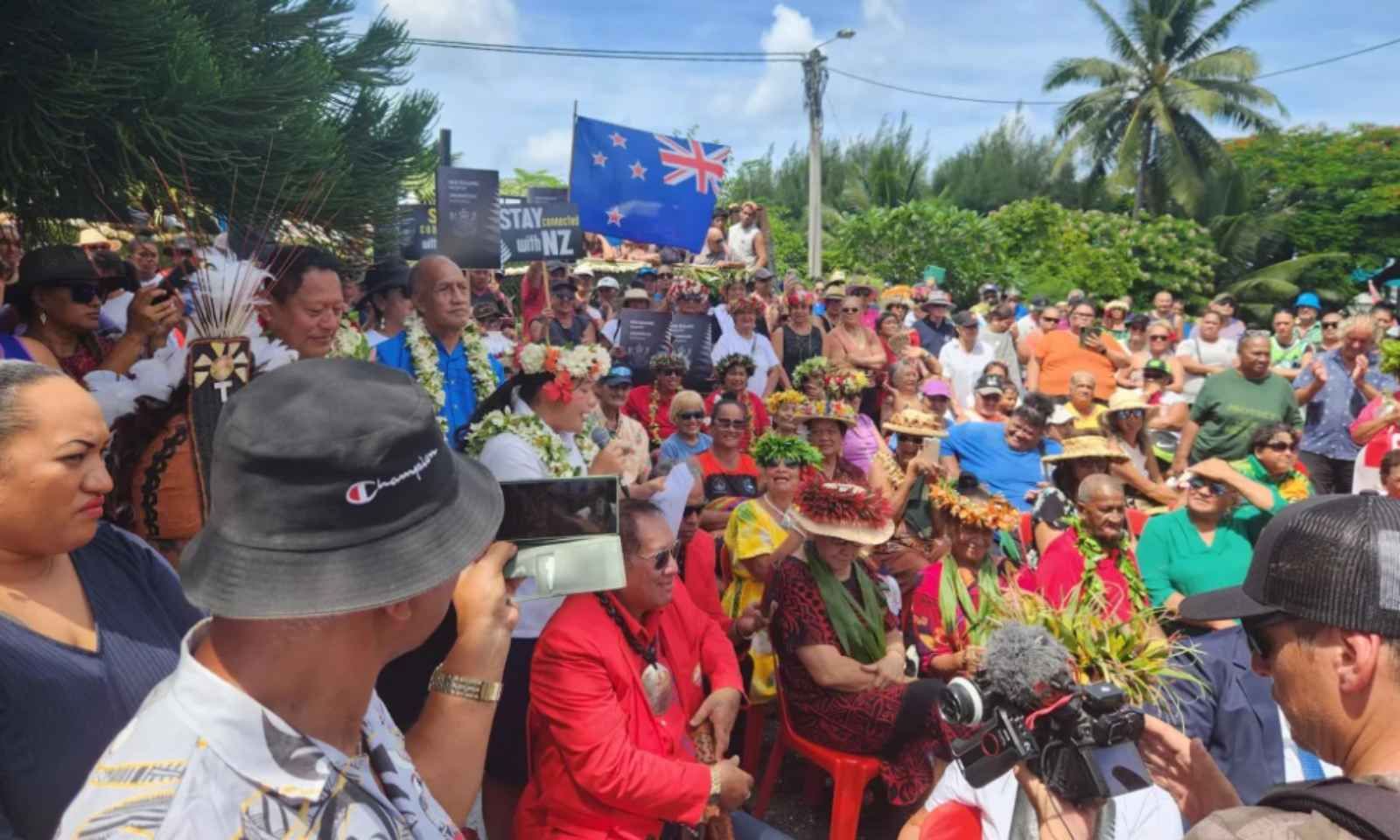

Photo/Supplied
Cook Islands-China pact: Call for careful understanding of international relations
Tensions continue to rise between New Zealand and the Cook Islands after the Pacific island nation forms a partnership with China, leading to a visible Chinese military presence in the Tasman Sea.

Time for an Indigenous State of Origin? The All Stars game shows who really powers the NRL



A former Pacific Minister is calling for greater understanding and respect in relationships with the island nations amid rising tensions relating to China’s influence in the region.
Aupito William Sio’s comments come as New Zealand’s relationship with the Cook Islands becomes strained after the Pacific island nation signed a partnership agreement with China.
The deal has raised concerns about China’s growing presence in the region. Beijing stunned Aotearoa and Australia by conducting military exercises in the Tasman Sea over the weekend with three warships.
Australia’s Prime Minister Anthony Albanese and Defence Minister Richard Marles announced on Saturday that China had not provided sufficient notice for the live-fire exercise conducted by its navy on Friday, which forced several commercial flights across the Tasman to divert course.
Media reported that three flights from Sydney bound for Christchurch and Queenstown were in the air on Friday morning before a Chinese warship warned them of a live-fire exercise.
New Zealand Defence Minister Judith Collins expressed disappointment at Beijing for not informing New Zealand that it would be sending a “highly capable” strike with “enormous strike power” down the east coast of Australia.
“We have had confirmation that personnel on Navy frigate HMNZS Te Kaha observed live rounds being fired from the Zunyi’s main gun, as would be expected during the course of such an exercise,” the AFP reported.
But the Chinese government has accused Australia of “hyping up” the live military drills.
Wu Qian, a defence ministry spokesman, says in a statement that they had notified Canberra: “During the period, China organised live-fire training of naval guns toward the sea on the basis of repeatedly issuing prior safety notices.”

Australian Navy sailors on HMAS Arunta keep watch on China's (PLA-N) Fuchi-class replenishment vessel Weishanhu and Jiangkai-class frigate Hengyang in the Tasman Sea. Photo/Royal Australian Navy
Aupito says it’s not helpful when people comment on these issues without understanding.
He told William Terite on Pacific Mornings that media reports should be cautiously approached, as they can sometimes miss the bigger picture.
He says China has been in the Pacific for a long time, just as Pacific nations have connections to Chinese waters.
“There are two issues here. One is about the Cook Islands passport and their drive for self-determination, which is the principle that the Pacific Islands Forum upholds. I mean, they've stood up for the Kanaks in New Caledonia. They've got a permanent agenda item on Papua New Guinea.
“So, the principle of self-determination is widely shared by Pacific Island nations. When they're talking about the passport, it's not a new conversation.
"During my time, I did ask MFAT officials what prevents the Cook Islands from becoming a member of the UN and a member of the World Bank and other multinational, multilateral organisations. And the answer was a passport.

Cook Islands PM Mark Brown and his Chinese counterpart Li Qiang during Brown's recent visit to China. Photo/Office of the Prime Minister of Cook Islands
“My second question was, what then stops the Cook Islands from having two passports? Are there other examples in the world? And yes, there are: Ireland has dual citizenship, Irish passport, UK passport, and many nations of the European Union.”
Aupito suggests that the Cook Islands Prime Minister Mark Brown might have benefitted from involving the community more in these discussions to ease public concern.
“I think the protests we saw was a bit of a panic. They're going to lose the New Zealand passport. I want to say to you, well, you're not going to lose the New Zealand passport, but I uphold the principle of self-determination.”
He questioned whether Aotearoa played a role in this situation, especially since past Labour governments have been more supportive of the Cook Islands building international relationships.
He noted a perceived double standard, where New Zealand previously encouraged ties with the United States but now seems to oppose the Cook Islands’ partnership with China.
“Look at what's happening with the US, they're pulling out, they don't want to support the Pacific. Our stance here has also changed. I remember during our time, we used those terminologies, indigenous words that the Pacific understood. We are Whanaungatanga, we uphold Manaakitanga, Kaitiakitanga, Rangatiratanga. We don't hear those words being used anymore by this present government.
Watch Aupito William Sio's full interview below.
“But you look across the ditch to Australia, and you see how Minister Pat Conroy, the Pacific Development Minister, embraced the new government of Vanuatu, all the members of the family, and said to them that we will walk with you side by side.
“So there is a different perspective and a different approach here. And I think largely it has to do with this geostrategic tension of wanting to push back on China.”
He points out that China, as a superpower, is acting like other powerful nations. But, he believes there are common cultural values between Maori and Pacific peoples and some Chinese practices that could be embraced for better relationships.
Aupito emphasises that if New Zealand genuinely wants to view Pacific nations as part of a larger family, it needs to act accordingly.
“At the moment, it seems like the behaviour of this government attacking Māori in their own land is what they're now displaying and demonstrating in the attitude towards the Cook Islands and Kiribati. And it probably won't end there.
“The reflection from those leaders will be, well, if you're going to behave like that, well, we'll turn our backs on you.”

People gather in Rarotonga to protest against the Cook Islands' government's decision to sign an agreement with China. Photo/RNZ Pacific
Professor Steven Ratuva, head of Pacific Studies at Canterbury University, says the recent diplomatic spat between New Zealand and the Cook Islands may have been caused by differing interpretations of "consultation".
But, he says to many in the Pacific, New Zealand’s handling reeks of neocolonial paternalism.
In his latest paper, published on Sunday, Ratuva says the Cook Islands, a self-governing territory in free association with New Zealand, can engage in international agreements but still operates under certain constitutional obligations to consult New Zealand on external affairs.
He says the differing interpretations of "consultation" are at the heart of the conflict.
He says future steps toward increased autonomy, such as seeking a new passport or UN membership, may require a referendum and negotiation with New Zealand regarding constitutional amendments.
Aupito says this shows that New Zealand is displaying childish behaviour.
“If you look at the responses in the media by China, they say they gave ample warning and that their conduct is the same conduct that New Zealand and Australia undertake when they're travelling through the Tasman for the Chinese waters towards, in their area.
“I think we've got to be very, very careful about being alert and alarmist. We’ve got to be very, very careful about causing a lot of panic because if you look at the response by the Chinese on the media, they said, hey, we gave warning and we were out in the high seas, international waters. What we were doing was safe, and there was no need to panic.”
In a poll conducted on our 531 Facebook page, PMN News asked readers whether the Cook Islands government is at fault for not consulting New Zealand or whether Aotearoa is to blame for encouraging Rarotonga to grow its international relations.
As of 2pm on Monday, 71 per cent say the Cook Islands is to blame, while 29 per cent polled New Zealand.